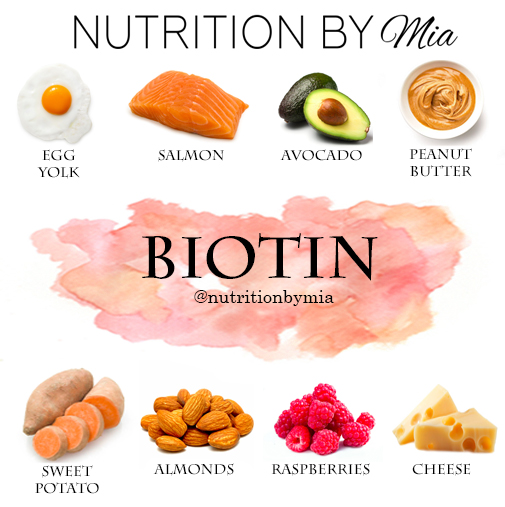
Hair, skin and nail health is often associated with the water-soluble B vitamin known as Biotin. It is found in small amounts across food groups with a variety of key roles that include balancing blood sugar and maintaining skin healthy. Through deficiency is rare, it may be exhibited by thinning hair, scaly skin or even depression and hallucinations.
Biotin’s roles:
Co-enzymatic roles: There are several biotin-dependent enzymes in the body. These enzymes take part in key pathways including gluconeogenesis, fatty acid synthesis and metabolism of some amino acids. As a B vitamin, Biotin helps the body convert food into energy.
Protein and gene expression: Its non-coenzymatic roles include biotinylation of proteins and over 2000 genes that depend on biotin for their expression. It is also needed for cell cycle progression.
Balancing blood sugar: Diets low in biotin have a direct effect on the production of insulin, a key hormone in the balancing of blood sugar.
Skin health: Biotin is needed to build healthy fats in the skin to keep it moist and supple. Deficiency is often exhibited by dry, flaky skin or dermatitis.
How much do we need:
Adults need 30 micrograms per day. Deficiency is rare. It may be seen in individuals with an alcohol addition or a diet high in raw eggs. Biotin is also made by a normal microflora of the large intestine and is partially absorbed but the amount it contributes is still unclear.
What is the deal with egg whites?
Egg whites contain high levels of the protein avidin which can irreversible bind biotin and prevent its bioavailability in the body. Avidin is denatured when cooked however one study showed that it still had activity even in cooked egg whites. Though deficiency is rare, it is important to be aware of these effects and aim for balance in your overall diet.












